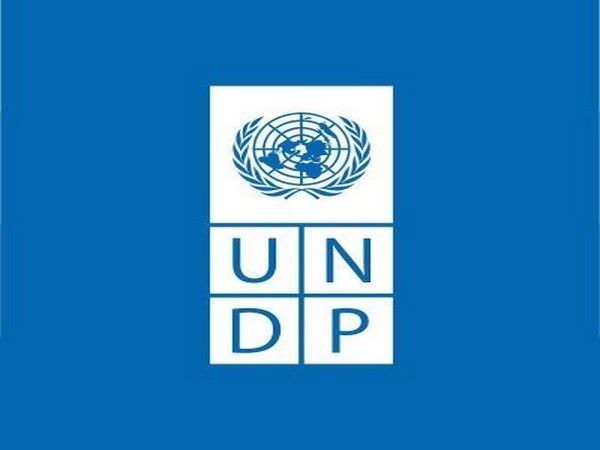UNDP Launches Guide to Advance People-Centred Justice and Security Globally
The guide is aligned with UNDP’s Strategic Plan 2026–2029 and builds upon the UNDP Policy Framework on People-Centred Justice and Security.

In a world where millions still lack access to effective, fair, and affordable justice, the United Nations Development Programme (UNDP) is leading a transformative push to reimagine justice systems through a people-centred approach. Rather than prioritizing institutional metrics or abstract legal frameworks, people-centred justice begins with the lived experiences of individuals and communities — especially those marginalized, underserved, or at risk of being left behind.
This paradigm shift emphasizes trust, fairness, inclusion, accountability, and safety as the central outcomes of justice systems. At its core, it calls for co-created solutions that are relevant, accessible, and adaptable to people's needs, breaking down bureaucratic barriers and building services that restore dignity and rights.
A Strategic Toolkit: Programming Guide on People-Centred Justice and Security
To support this shift from theory to practice, UNDP has launched the Programming Guide on People-Centred Justice and Security — a practical roadmap designed to equip its Country Offices with actionable tools, diagnostics, and implementation strategies. The guide is aligned with UNDP's Strategic Plan 2026–2029 and builds upon the UNDP Policy Framework on People-Centred Justice and Security.
"A people-centred approach is not just the right thing to do, it is the smart thing to do," said Revai Makanje-Aalbaek, UNDP's Global Lead on People-Centred Justice. "When justice and security systems are accessible, fair and accountable, they foster trust, empower communities, and unlock sustainable development."
The guide offers a step-by-step, flexible process that includes diagnosing justice challenges, co-creating and testing local solutions, adapting through learning cycles, and measuring progress based on meaningful outcomes — not just legal outputs.
Global Examples: Local Impact in Action
Backed by the Justice Action Coalition Catalytic Fund, with contributions from the Netherlands and Germany, UNDP has already demonstrated people-centred justice in action across diverse contexts, including Sierra Leone, Kenya, and Colombia. These field-level interventions show how justice can be delivered in ways that resonate with communities and address real needs.
Sierra Leone: Justice Delivered Where It's Needed Most
In rural Sierra Leone, UNDP supports mobile legal clinics and community paralegals who bring justice services to remote communities, often unreachable by traditional courts. These community-based mechanisms have helped resolve disputes such as land rights, family conflicts, and inheritance claims, with more than 2,000 individuals assisted, including 900 women.
"Going through the formal justice system can be expensive and intimidating," said Shahid M. Korjie, Coordinator of the Justice Sector Coordination Office. "Paralegals help women reclaim land or mediate child custody cases in their communities."
Kenya: Digitizing Access Through Small Claims Courts
Kenya has introduced Small Claims Courts (SCCs) to resolve everyday commercial disputes swiftly and affordably. The innovation includes digital court services and a mobile app, particularly beneficial for women entrepreneurs and informal traders.
"You can track your case or join a virtual hearing through your mobile device," noted Hon. Susan Gitonga, Deputy Registrar at Milimani Law Courts. "With a 60-day case turnaround time, people reinvest in their businesses quickly."
Colombia: Empowerment Through Justice and Culture
In Colombia, UNDP is supporting peace and reconciliation efforts by helping victims of conflict access justice through a mix of legal empowerment and creative expression. Communities use art, music, and storytelling to voice grievances, claim rights, and heal trauma — transforming personal pain into collective advocacy.
"This initiative places people — especially victims — at the heart of Colombia's peace process," said a local project partner. "Justice becomes not only a legal process but a human journey."
The Hague: A Hub for Justice Innovation and Global Dialogue
The Programming Guide was launched at the inaugural event of the Justice Futures CoLab in The Hague, marking a significant moment in UNDP's role as a hub for global justice innovation. This new platform will serve as a space for policymakers, practitioners, and communities to co-design future-ready justice systems.
"It is by operationalizing people-centred justice that institutions become more intentional about delivering services that produce direct and tangible effects for people's lives," said Valentijn Wortelboer, Senior Policy Officer at the Netherlands Ministry of Foreign Affairs.
Justice as a Strategic Enabler of the 2030 Agenda
People-centred justice is not a standalone goal. It is a strategic enabler of the Sustainable Development Goals (SDGs) — especially Goal 16 on peace, justice, and strong institutions. By investing in justice that is responsive, inclusive, and accountable, societies can strengthen the social contract, prevent conflict, and foster resilient democratic governance.
UNDP's call to action is clear: Justice systems must serve people — not the other way around. By reimagining the way justice is delivered, and putting people at the core, countries can build trustworthy institutions, close the justice gap, and drive inclusive development that leaves no one behind.
ALSO READ
-
Disputes Tribunal Jurisdiction Doubled to $60,000 to Improve Access to Justice
-
Gender Equality as Smart Investment: UNDP’s Roadmap for Inclusive Development
-
Former Belgian PM Alexander De Croo Tapped to Lead UNDP
-
UNDP Calls for Renewed Global Effort to End Poverty and Protect Families
-
Debunking Tobacco Lies: UNDP–WHO Reveal the Real Costs of a Global Addiction









